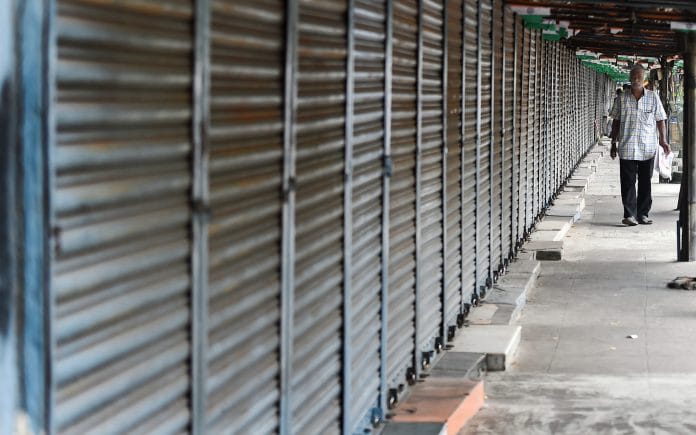In an unprecedented move, the Mayor of the South Delhi Municipal Corporation has proposed to shut meat shops under his jurisdiction during Navratri — 2 to 11 April.
“Keeping in view the sentiments and feelings of the general public, necessary directions may be issued to the officers concerned to take necessary action for the closure of meat shops during the nine-day period,” Mukesh Suryan wrote. The move is yet to be okayed by the Commissioner.
The reason I am surprised by this proposal is that it happened in India’s capital, a cosmopolitan hub. This sudden proposal to blanket ban meat shops is based on the assumption that “99% of people in Delhi” fast and do not consume non-vegetarian food during the fasting days.
I too observe fast (first and last days) during the Chaitra (Spring) Navratri, but this choice comes from within and is not directed by government orders. Why should anybody force their religious beliefs on someone’s choice of food? If I am fasting, I won’t head to the meat shop or liquor shops — simple.
This time, the Chaitra Navratri is also coinciding with the month of Ramzan, the holiest month for the Muslim community. The SDMC also happens to cover the Muslim majority area of Okhla. What about Hindus, Christians or Muslims who don’t observe fast in the first place? What about atheists or agnostics? This move has less to do with piety, and more to do with religious might. And it is not based on any credible data.
Also Read: Gobi manchurian and chilli chicken are ‘made in India’, Athawale’s ban on Chinese food futile
What does the data say about food habits?
Now our honourable mayor, who has sought such a ban without an official order, says that 99 per cent of the people in the city “do not even eat onion or garlic”. I have no idea where this statistic comes from, but I will share some interesting data points that do not coincide with his statements.
According to a survey by the Centre for Studying Developing Societies (CSDS), Lokniti and German think tank Konrad Adenauer Stiftung last year, Sikhs and Hindus were the least likely to fast compared to Muslims. Data shows that about 19 per cent of the surveyed Hindus and 63 per cent of the surveyed Sikhs didn’t fast, even when there was a festival going on. Only 32 per cent of Hindu youngsters said that they fasted during the festivals, so we can assume that the number of fasting people is not that high in the first place.
Second, the meat-eating habits in Delhi do not allow scope for such bans. According to the National Family Health Survey 5 (2019-21), about 3 per cent of men and women in the city eat meat and 10-15 per cent eat eggs on a daily basis. Meanwhile, only about one-third population of women and a quarter population of men are vegetarians. So technically, there cannot be 99 per cent of people at any point in time, not consuming onion and garlic when we have meat-eaters on any given day.
The state intervention in people’s eating habits is a dangerous step. The law prohibiting cow slaughter was a first, but now the flames are inching toward other non-vegetarian products. This must ring bells for a protein-deficient country where half the kids are suffering from anaemia and malnutrition. In fact, you don’t even need to look that far. According to a 2017 study by research firm IMRB, close to 60 per cent of Delhi’s population suffered from protein deficiency.
Also Read: The itch of mainland Indians to ‘civilise’ northeast hasn’t gone. Dog meat ban another example
Bad optics for Delhi
This is also bad optics for the state’s ease of doing business. On one hand, we want meat companies like Licious, Fresh to Home, Meatigo, to flourish, and on the other, we want to harass our own shopkeepers for keeping up with the demands of the meat-eaters.
The argument of some ‘social media warriors’ supporting the proposal is that countries like Saudi Arabia and Pakistan prohibit the sale of certain food items and alcohol during the Ramzan fasting period. My question to them is simple — why do we need to follow in their footsteps? Are we trying to create a ‘Hindu Pakistan’?
I do not eat meat during these nine days of Navrati, but at the same time, I do not wish to see others being deprived of their food just because I am participating in my customs. That’s not how you grow respect for a community, festival or religion. In our neighbourhood, Ghaziabad’s mayor has rolled back a similar meat ban proposal, and I hope Delhi follows suit soon.
Views are personal.






